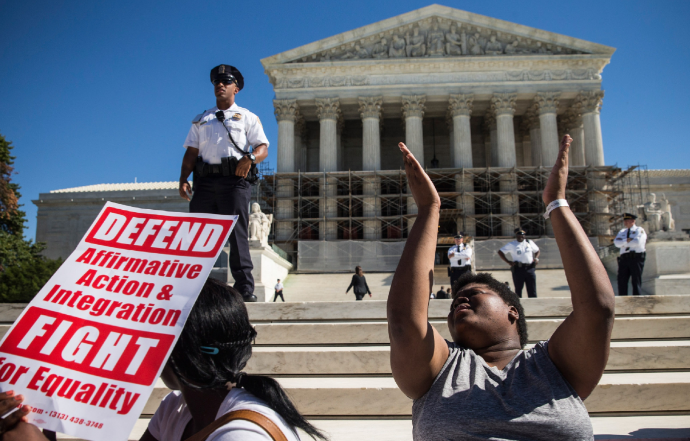Equity in higher education doesn’t just happen: We need affirmative action
By Adzua Agyapon
This month, the Supreme Court of the United States will revisit the question of affirmative action in higher education. The court will hear arguments regarding race as a factor in admissions programs at the University of North Carolina and Harvard, with the goal of fostering diversity on campus. Previous SCOTUS decisions upheld such programs, but the current “conservative supermajority” may not be as supportive.
Arguments against affirmative action always follow a familiar line: Higher education institutions should admit only the most meritorious students regardless of identity. This would be a reasonable position if we lived in a society where all young people get the same opportunities from birth. But we don’t, and never have.
According to Sarah Hinger, a senior staff attorney with the American Civil Liberties Union, “The goal of these suits — to end the consideration of race in college admissions — is extreme, ignores the history of race discrimination, and threatens diversity and inclusion on campuses.”
As a Black college graduate and the senior director of policy and advocacy for KIPP public schools, I know from firsthand experience that affirmative action isn’t enough. But it’s a necessary first step. Eliminating race-conscious college admissions would effectively shut out scores of qualified Black, Indigenous and other people of color from higher education, with devastating consequences for the next generation of Americans.
Read the full op-ed here.
